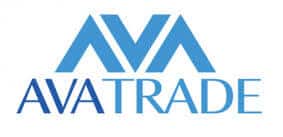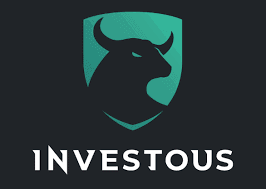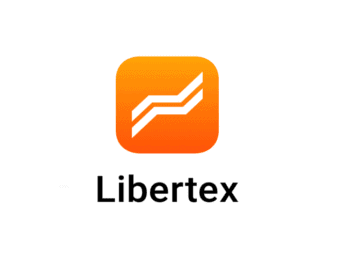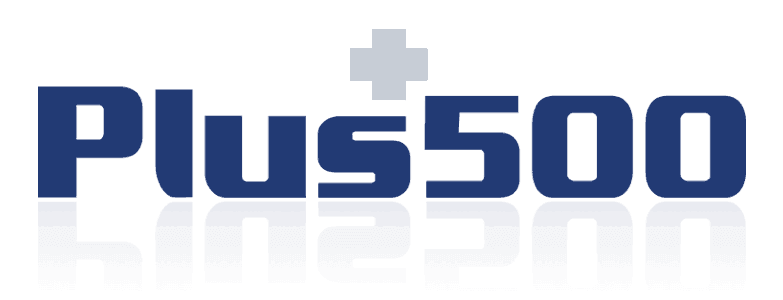Best Commodity Brokers for 2026
Since farmers started trading wheat, eggs and butter on the Chicago exchanges in the nineteenth century, commodity brokers have been arranging trades. Traders soon entered the market and began to trade on a purely speculative basis, never taking ownership of the underlying commodities. Commodity brokers continue to act as the middlemen between hedgers and speculators in exchange for a commission.
Today, online commodity brokers allow anyone to trade commodities from a desktop trading platform or mobile app. Many online brokers offer a broad range of commodities to trade: metals (gold, silver), energy (oil, gas), and agricultural products (soybeans, wheat, corn, sugar, coffee). These online trading platforms sell financial contracts, called commodity derivatives, whose value is based on an underlying commodity. They allow traders to profit from price changes in the commodity without ever taking ownership.
For a detailed list of what commodities are, check our guide here.
The Top 4 Online Commodity Brokers
If you don’t have time to read our guide in full, here’s a quick look at the very best commodity brokers on the market today.
- AvaTrade – Commodity broker with MT4/5
- Investous – Options and spread betting on commodities
- Plus500 – CFD broker with tight spreads
- Libertex – Renowned US commodity broker
-
-
How to Choose a Commodities Broker
There are a great number of commodity brokers in the market, so how do you choose the best one for you? Some are focused on low fees, whereas others give more weight to trading charts and indicators. More experienced traders may want to work with brokers that give them higher leverage or a wider choice of investments. The commodity broker you choose should align with your investment experience, risk profile and trading strategy.
To help you out, we have reviewed the major CFD brokers, comparing their features and identifying the pros and cons of their platforms.
Best Commodity Traders for 2026
1. AvaTrade - Best for Trade Loss Protection
Commodity investors seeking security can safely place their money with AvaTrade. The Ireland-based FX and CFD trading platform is regulated in six global jurisdictions.
Additionally, copy trading and expert advisor portfolios are offered with access to both ZuluTrade and DupliTrade or let AutoChartist or Guardian Angel add-ons guide your trading strategy. Both MetaTrader 4 and MetaTrader 5 are provided, as well as the AvaTradeGo app.
Within CFDs, there are over 1,000 financial instruments offered, 17 metals, energy and agricultural commodities can be traded with no commissions. At the end of 2019, AvaTrade lowered its spreads. Spreads on gold and oil are now a more competitive 0.34% and 0.03%, respectively, and for soybeans is $1 over market. Margin account call levels are 50% for retail and 10% for professional accounts.
Traders can insure their positions with a unique hedging tool AvaProtect that charges a small fee, based on the underlying volatility of an asset, to fully cover trade losses, minus the spread and fee, for a duration of 1–2 days on commodities. On the FX options platform AvaOptions, vanilla options also can be traded on gold and silver.
4.5

- Competitive spreads, no commissions and €100 minimum
- Copy trading and Autochartist add-ons
- AvaProtect trading loss protection
- Overnight, rollover, and no activity fees
- Higher deposits for DupliTrade ($2,000) and AutoChartist ($500)
2. Investous - Best for Options and Spread Betting
On Investous, traders can trade CFDs on commodities, as well as stocks, indices, forex and cryptocurrencies, across 270 financial instruments. The Ireland-based trading platform is registered in six jurisdictions on five continents but is not open to continental European traders. Traders can trade on the Investous web trader or app, or MetaTrader 4.
For commodities traders, gold, silver, aluminium and zinc are available to trade. Leverage on commodities for retail traders is up to 30:1 and 400:1 for professional traders. Margin account leverage for metals is 50 percent, 25–50 percent for energy and 25 percent for other commodities. No commissions are charged, but fees do apply for withdrawals, and overnight and rollover services. Spreads are higher than those of some competitors but improve with higher-level accounts. Access to resources is limited and based on the account level you own. A basic account can access one lesson per month whereas a VIP account has more options; five advanced lessons and five monthly webinars.
4
- No commissions and €250 account minimum
- Competitive spreads
- Options and spread betting
- Overnight, rollover, withdrawal, maintenance and inactivity fees
- Restricted educational resources
3. Libertex - Best for zero spreads and low commissions
If you are seeking a simple, intuitive platform, Libertex takes the complexity out of trading. Forex traders may already know Libertexas it's a popular platform for forex, crypto (50+ cryptos), and also CFD (stocks, indices, commodities) trading. Traders flock to this platform for its zero spreads, and special trade pricing and leverage features, all designed to make it easier to place a trade and manage risk. Commodities are traded via CFDs on metals, agriculture, and oil and gas.
Leverage ratios of 30:1 for retail traders are capped on commodities at 10:1, and 20:1 for gold and minor indices. Libertex provides a simplified leverage feature called a Multiplier. With no spreads to calculate and use of the Multiplier feature, your money at risk is instantly shown. Trades are executed at the mid-price which is the average of the current bid and ask price and helps offset the commission. Commissions on commodities vary, ranging from 0.0153 on gold to 0.2145 on WTI oil. These commissions are then discounted based on the account level, from 3–30 per cent across four GOLD (€250 deposit) to VIP (€5,000 deposit) level accounts. The Libertex platform is available via a mobile web-based trading app. If you want a full desktop and charting experience, MetaTrader4 is an option.
OUR RATING
- Leverage up to 1:30 for retail clients and 1:600 for professional clients
- 50% off commission for new traders
- Commissions and overnight fees
- Limited number of instruments (200+)
4. Plus500 - Tight Spreads and No Fees
Plus500 provides low competitive trading costs for CFDS on one of the most highly regulated trading platforms for advanced traders. The London Stock Exchange-listed company is regulated in multiple jurisdictions, including being authorized & regulated by the FCA in the UK, Australia, Singapore, and Cyprus. Plus500 offers CFDs on over 2,000 financial instruments (stocks, forex, crypto, commodities, indices and options). Both Plus500 mobile app and desktop trading platforms are available. About two dozen commodities are available to trade across the metals, energy and agricultural complexes.
Leverage on commodities for retail traders is up to 20:1 and 150:1 for professional traders. For retail traders, leverage is capped at 20:1 for gold, and 10:1 for oil and soybeans. Plus500 also provides options on commodities, including oil, natural gas and gold. This no trading fees broker makes its money on the spread. Spreads on commodities are tight: 0.36% on gold, 0.08% on crude oil and 0.18% on soybeans. Overnight and maintenance margin fees apply. Examples of maintenance margins are 5 percent for oil and soybeans, and 2.5 percent for gold.
OUR RATING
- Tight spreads, no commissions and €100 minimum
- Leverage up to 1:30 for retail clients and 1:500 for professional clients
- Guaranteed stops (charges a wider spread)
- Maintenance margin, overnight and inactivity fees
- Proprietary trading platform, no third party extensions
- No access to Meta Trader 4
How to Trade Commodities
If you want to trade commodities online, the first step is to choose the type of contract you want to trade. Most commodities are traded using contract for differences (CFDs) or futures contracts. Both these instruments allow you to make bets on the future price of a commodity.
Contract for Differences (CFD)
Most of the commodities brokers in the market operate through CFDs. CFD stands for “Contract For Difference”, and are basically financial derivatives that enable retail investors to speculate on the price movement of stocks, bonds, and commodities, without owning the underlying asset.
CFDs are a favorite for most investors as they allow them to increase their exposure to the asset by leverage. Bear in mind, however, that CFDs are complex products with a high risk of losing or gaining money quickly. The risk factor is evidenced by the fact that between 74-89% of retail investor accounts lose money when trading CFDs. You, therefore, are better off investing with an investment firm or stock broker that has both the trading experience and advanced risk management tools.
Pros
- Higher leverage than for traditional securities
- Lower margins requirements
Cons
- Higher leverage means higher losses if the price moves in the opposite direction of your bet
- If the trade loss exceeds your margin level limit, the broker will make a margin call, requiring you to add funds to your account. The broker could also sell some of your securities to cover the loss.
- CFD trading is not allowed in the U.S.
Futures
These exchange-traded contracts provide the right to buy or sell a commodity at a fixed price and future date (1 month to years in the future). At contract expiration, the buyer purchases and the seller sells the underlying commodity. The contract terms—contract size, price and delivery date—are standardized.
Pros
- Futures are traded on a regulated exchange
- Full price transparency
- Lower volatility risk than CDs
Cons
- Leverage may be lower and margin requirements higher
- Larger standardized contracts, and thus capital commitment
- Fewer markets than for CFDs.
Since CFDs allow investors to increase their exposure to assets through leverage, bear in mind that they are complex products with a high risk of losing or gaining money quickly. Between 74—89% of retail investor accounts lose money when trading CFDs.
Regulated vs Unregulated – Commodity Broker Licenses
Before investing in commodities, or any other financial instrument for that matter, you should conduct research to ensure that your online commodity broker is fully regulated. Brokers have to adhere to financial rules established by government agencies, which include having customer safeguards like fund protection, maintaining capitalization and being subject to regular audits. Your online broker should also have licenses from one of these agencies, which guarantees a higher level of reliability.
The CFD is a particularly popular security sold by unregulated brokers. Opening an account with an unregulated online broker is assuming a great deal of risk, as these brokers could close down overnight and disappear with customer funds. As they operate online, they could be hard to prosecute due to their tendency to locate in hard-to-pursue jurisdictions. You should also keep an eye on fraudsters that claim to be licensed by fictitious agencies. Always do your due diligence before investing money.
Qualifications for Commodity Brokers
Choosing a broker whose services are aligned with your experience and investment goals can make the difference between meeting and falling well short of your investment objectives. Beginners may want simplicity and an easy-to-use interface, while others may want lower fees and higher leverage. Other traders may seek a wider number of investment options, advanced charting or responsive customer service.
Each of these commodity brokers can offer a unique value proposition to the commodity trader, depending on your trading and investment objectives.
Commodity Price Forecasting & Research Tools
When shopping around for the best commodity broker, investors too often pay scant attention to the research offerings. A commodity trading broker with abundant investment research offerings could significantly improve your investment returns. After all, knowledge is power. Good research resources are all the more important in the commodity markets. Many factors affect commodity prices, and each commodity has its own unique factors influencing its value.
Unless you are investing in a company focused on a commodity sector, you will not find historical performance data and forecasts conveniently provided in an earnings report. Instead, you will need to search wider for information affecting say oil, gold, wheat or platinum prices. Following are some of the key research resources used by commodity traders and provided by many online commodity brokers.
Economic calendar – Keep an eye out for major monetary policy announcements, as economic growth will affect the price of all commodities. Some key numbers to watch out for include:
GDP – Cyclical commodities like metals (copper, platinum) tend to decline with economic growth. Gold is an exception. When economic growth slows investors rush to gold as a flight to safety. Non-cyclical commodities like electricity and gas will not be affected by economic cycles since they are a necessity. Oil prices, on the other hand, will fall as economic activity declines.
Interest rates – Generally, when interest rates rise commodity prices decline. Gold as a traditional store of value is particularly sensitive to interest rates. When interest rates are low, investors put money in gold. Whereas when interest rates rise, investors move their money into higher interest-bearing securities.
Inflation – Rising inflation will increase the price of gold and other precious metals. Oil has such a strong influence on economies that it controls inflation. Falling oil prices will push down inflation.
Currencies – Many commodities are exported and therefore their prices are affected by currency exchange risk. While trading commodities, you may also want to make use of the foreign-exchange correlations provided on the trading platform. Currencies of countries with high oil exports, for example, are sensitive to oil prices.
General News – In addition to economic news, geopolitics influences the prices of many commodities. Since several large oil-producing countries dominate oil production, political conflict in these regions affects oil prices. A prime example is the fall in oil production and rise in prices during the Gulf War in 1991. Some commodity brokerage platforms will provide access to Bloomberg, Reuters and other business and financial news sites.
Analyst reports – Others will offer full research support, including analysts reports, full access to Morningstar, Bloomberg, and so on. Commodity traders should understand the supply and demand dynamics of the commodities they invest in. Expert industry analysis can provide unique insight. Formerly one could trade corn based on agricultural reports. Since corn is now an important commodity in fuel production, you may also want to know how clean fuel demand and ethanol taxes will affect corn prices.
Industry news/reports – All commodity sectors publish supply and demand forecast reports. If investing in platinum, for example, you may already follow auto production news, but likely need to turn to industry reports to understand how China chemical production and LCD glass demand will affect platinum prices.
A useful complement to commodity news and research are alerts to apprise you of important news. A good commodity broker set up will allow you to intuitively integrate all these tools into your trading environment to gain an investment edge.
FAQs
What does a commodity broker do?
A commodity broker is a firm or an individual who executes orders to buy or sell commodity contracts on behalf of the clients and charges them a commission.
What is a commodity broker salary?
According to a compensation analysis report published by the HC Insider in 2013, commodity traders with less than three years experience earned an average base salary of $100,000 to $150,000. Traders with more than five years experience had average base salaries of $200,000 to $350,000.
How do commodity brokers make money?
Compensation for commodity brokers is generally on a commission basis; this means they receive a percentage of the gross commissions from the trades placed by their customers. Commissions are the fees associated with the execution of buying and selling orders.
How do I become a commodities trader?
Step 1: Complete a Bachelor’s Degree Program. The first step to becoming a commodities broker is to earn a bachelor’s degree. … Step 2: Complete Job Training. … Step 3: Attain FINRA Licensure. … Step 4: Become Certified. … Step 6: Advance with Experience and Education.
What is an example of a commodity?
Grain, precious metals, electricity, oil, beef, orange juice, and natural gas are traditional examples of commodities, but foreign currencies, emissions credits, bandwidth, and certain financial instruments are also part of today’s commodity markets.
How do I buy commodities?
There are four ways to invest in commodities: Investing directly in the commodity. Using commodity futures contracts to invest. Buying shares of exchange-traded funds that specialize in commodities. Buying shares of stock in companies that produce commodities.
See Our Full Range Of Broker Resources – Brokers A-Z

Edith Muthoni
Edith Muthoni
View all posts by Edith MuthoniEdith is an investment writer, trader, and personal finance coach specializing in investments advice around the fintech niche. Her fields of expertise include stocks, commodities, forex, indices, bonds, and cryptocurrency investments. She holds a Masters degree in Economics with years of experience as a banker-cum-investment analyst. She is currently the chief editor, learnbonds.com where she specializes in spotting investment opportunities in the emerging financial technology scene and coming up with practical strategies for their exploitation. She also helps her clients identify and take advantage of investment opportunities in the disruptive Fintech world.
WARNING: The content on this site should not be considered investment advice. Investing is speculative. When investing your capital is at risk. This site is not intended for use in jurisdictions in which the trading or investments described are prohibited and should only be used by such persons and in such ways as are legally permitted. Your investment may not qualify for investor protection in your country or state of residence, so please conduct your own due diligence. Contracts for Difference (“CFDs”) are leveraged products and carry a significant risk of loss to your capital. Please ensure you fully understand the risks and seek independent advice. This website is free for you to use but we may receive commission from the companies we feature on this site.
Copyright © 2026 | Learnbonds.com
We use cookies to ensure that we give you the best experience on our website. If you continue to use this site we will assume that you are happy with it.Scroll Up



